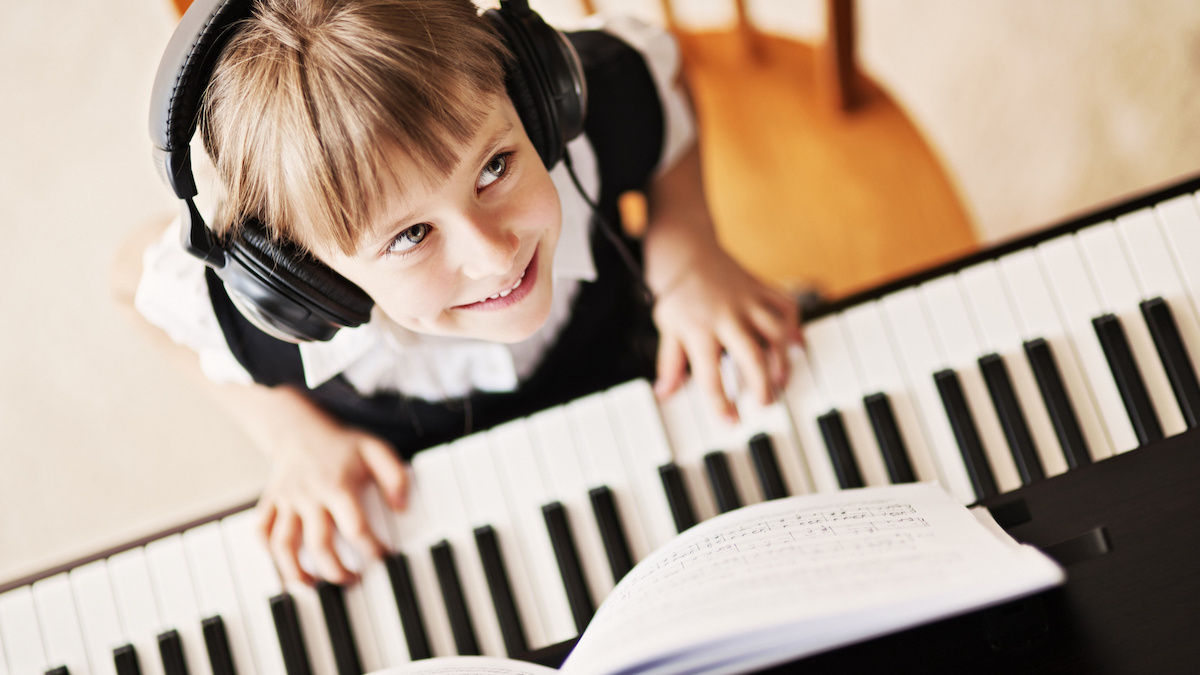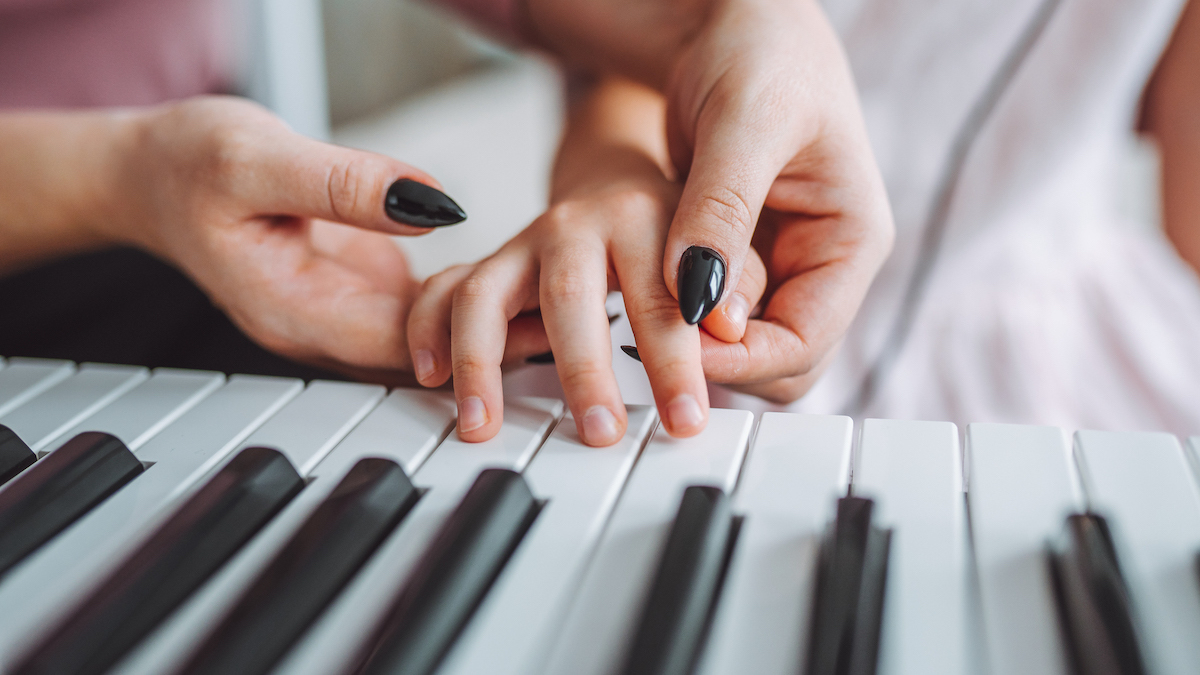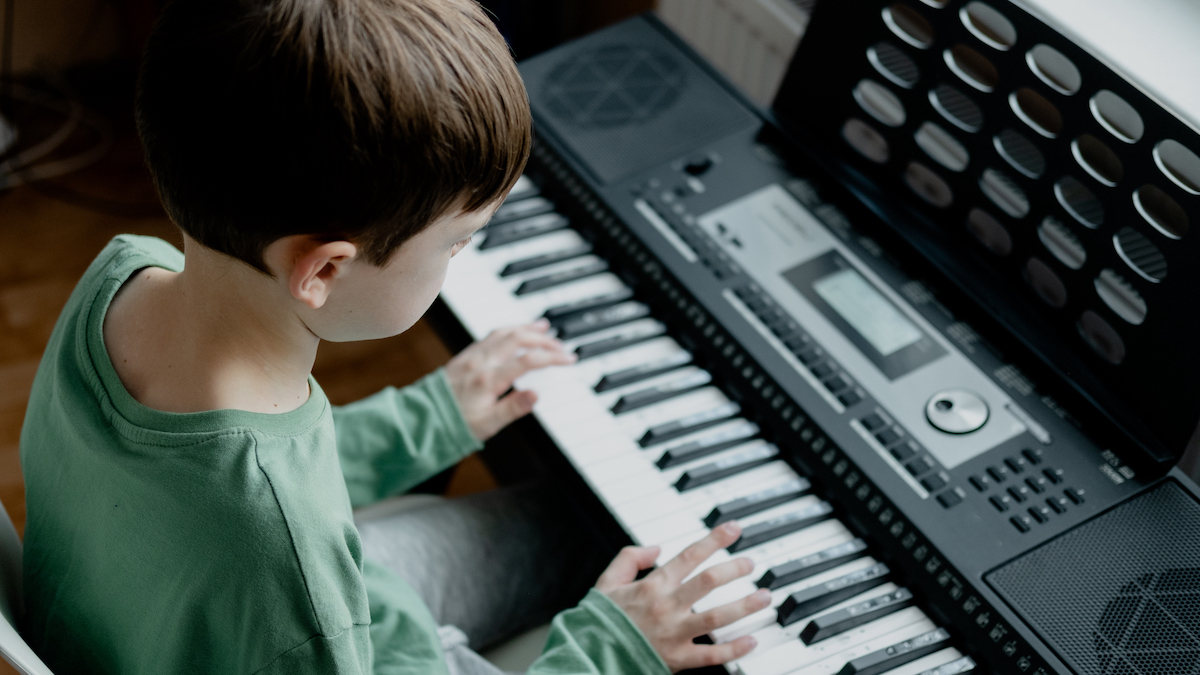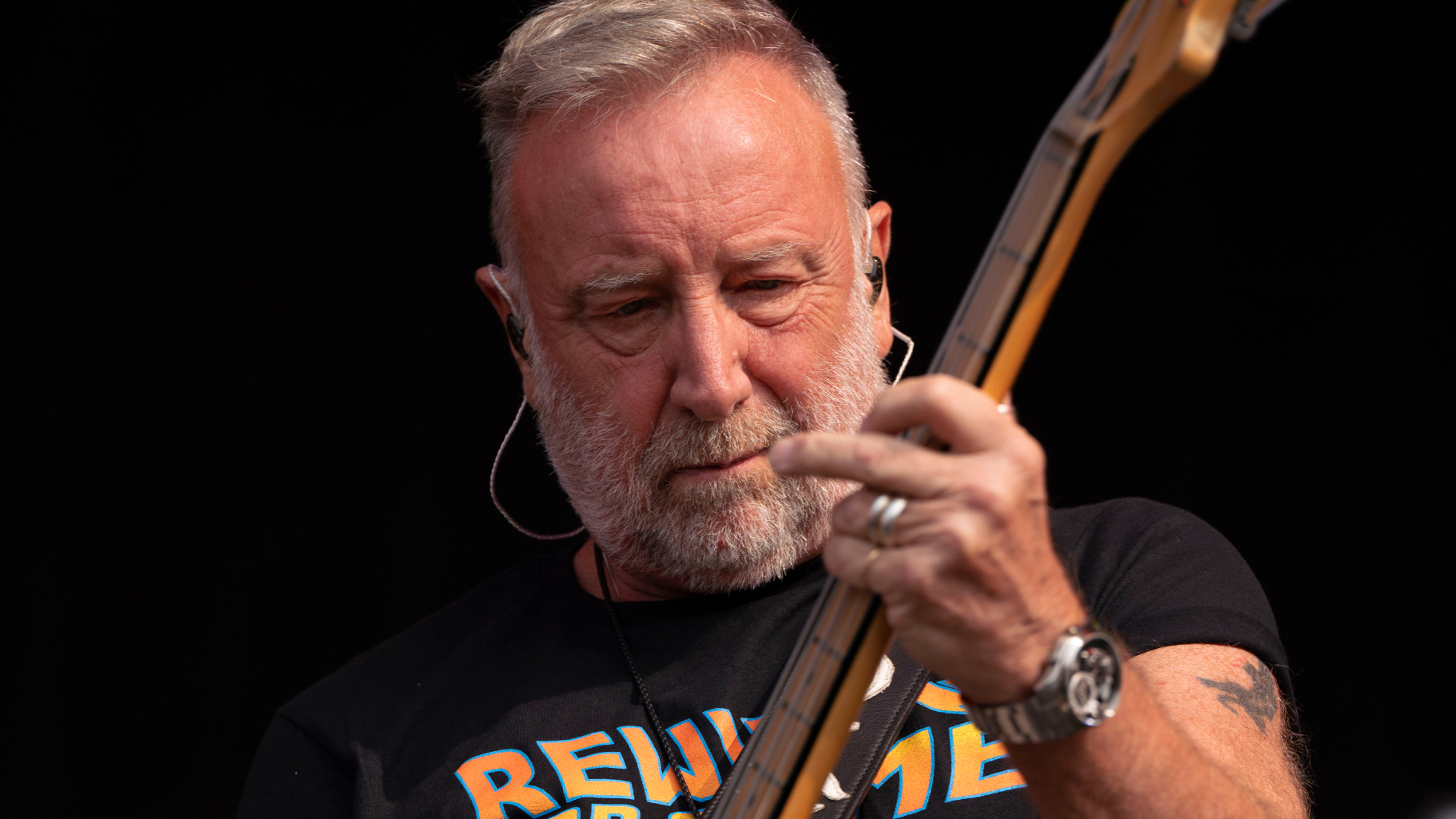Is the keyboard easy to learn? Here's 9 reasons why it's one of the best starting points for any new musician
Thinking of picking up an instrument? Find out why we believe the keyboard is the way to go – plus beginner tips and guidance from a teacher

The keyboard is one of the easiest instruments to learn; it's quick to pick up, intuitive and versatile, while also being one of the more affordable instruments to get going with – you can pick up a great beginner keyboard for under $150/£100. Plus, its popularity guarantees a wide range of courses to suit your needs.
It is well established that playing an instrument can be one of the kindest things you can do for yourself. Learning the piano can benefit your wellbeing and creativity, offer the opportunity to socialise with like-minded people, slow down the ageing process and even boost your brainpower. So embarking on the journey of learning an instrument could be just the adventure you've been looking for.
However, knowing where to start and which instrument to learn can be a difficult choice. As a multi-instrumentalist and composer, my musical journey began with playing the piano with my mum, aged four. I believe that learning to play the piano, and more specifically the keyboard, is the best place to start, as it is one of the easiest instruments to learn. If four-year-old me can do it, you can do it too. Here's why...
1. The keyboard is straightforward
The keyboard is a great instrument for beginners as it doesn’t need any technique in order to make a sound. Whereas a brass or woodwind instrument requires you to grasp an unnatural mouth position, and bowed string instruments can be a fiddle to find the correct movement of the bow, on a keyboard the notes are laid out in front of you in clear black and white – and producing a sound is as easy as pressing on a key. Because of this simplicity you will likely be able to play a simple tune from your very first lesson. While there are other instruments, like the harmonica or ukulele, that don’t require extensive technique to produce sound, they come with their own disadvantages. With the ukulele you will find it hard to graduate from the realm of campfire sing-alongs – where do you go when you’ve mastered 'Somewhere Over The Rainbow' and 'You Are My Sunshine’?
2. The keyboard is a versatile instrument
While some instruments have a quick learning curve, they might lack the versatility needed to keep you motivated and excited in the long run. If you're aiming to develop your musical abilities over time then the keyboard offers that opportunity down the line. Although playing a note on the keyboard is simple, after a few classes you will find that the tunes you’re learning will require coordination between both hands (and sometimes feet). With a keyboard you have the ability to play chords and melodies at the same time. Few other instruments have this versatility. So although it’s easy to start playing the keyboard, you won't lose interest as there is always more to explore, and you can also transfer your skills to a piano.
3. Playing the keyboard is easier than playing the piano
While keyboards are the digital counterparts of acoustic pianos, they offer distinct advantages that facilitate learning. The main difference lies in the action of the keys: acoustic piano keys possess a natural weight and resistance due to their internal mechanisms, requiring a certain level of technical skill. However, most keyboards feature 'velocity-sensitive’ keys rather than piano-style 'weighted' ones. This means that the keys on a keyboard have a simple up/down motion with minimal resistance, which allows you to play without having to engage much finger strength or specific articulation; they are more forgiving and produce a clear sound even if your hand position or pressure isn’t perfect.
Other differences lie in the size and digital nature of keyboards. They are much more portable and compact than a piano, with additional features like volume control and headphone compatibility, making early learning stages more enjoyable for those around you.
Get the MusicRadar Newsletter
Want all the hottest music and gear news, reviews, deals, features and more, direct to your inbox? Sign up here.
Moreover, keyboards are generally more affordable for beginners compared to upright pianos, with various price ranges available. Rest assured, despite their distinctions, the skills acquired on the keyboard are transferable to the piano.

4. You don't necessarily have to read music
Do you need to be able to read music to play a keyboard? Not necessarily – it will depend on the type of music you want to play. If you’re going down the road of classical music, then it will require you to learn to read music. Unfortunately, piano and keyboard music is written using two different clefs; the treble and bass clefs.
Although this may seem like a drawback, many music genres such as blues or pop rely more on learning chords, scales and shapes rather than extensive music reading. Some people even learn the piano by ear and don’t know how to read sheet music.
5. The keyboard works with all genres of music
From jazz and funk to classical, to electronica and pop, the keyboard offers such a fast versatility when it comes to genre, as virtually every music style can be played on a keyboard. There’s nothing more inspiring than playing along to your favourite songs. It’s also much easier to learn if you know what you’re working towards, when you can hear if the notes are wrong you’ll pick up the translation from sheet to fingers much faster and, maybe, start writing your own music.
6. Learning the keyboard is a gateway to songwriting
The guitar and piano are songwriters' favourites for a simple reason: they offer the unique ability to accompany yourself while singing. Therefore learning a few chords and arpeggios will allow you to start writing your own songs, opening up a world of creative possibilities. This will not only keep you feeling fulfilled and motivated, it will also expand your learning, tapping into the art of improvisation. And once you’ve tasted the sweet taste of music making then you’re in for an exciting adventure, because keyboards can be plugged into a computer or tablet and used as MIDI controllers, enabling you to record, play virtual instruments, and produce your own music. As a songwriting teacher, I always encourage my students to learn the basics of keyboard playing as it is an essential tool in songwriting, composition and production.
You might think that playing the guitar would be easier. But trust me, as someone who learned the guitar in his late teens, it took me a few months to master some of the basic chords, whereas it would have taken only a few days to achieve the same thing on the keyboard.
7. There are different approaches to learning the keyboard
There isn’t just one way to learn to play the keyboard. When it comes to mastering a new instrument, finding a good teacher is the best way to establish solid foundations that will enable you to progress quickly. That being said, we live in a digital world, and the internet is a goldmine of online courses and tutorials. The piano is such a popular instrument that there are countless books and online resources on how to play it. So if you have the curiosity, patience, and dedication, it is entirely possible to learn by watching videos online. If your goal is simply to play chords and accompany yourself, you can become your own teacher with a little help from YouTube.

8. A keyboard doesn't need to be a big investment
Keyboards are generally much cheaper than pianos and come in different sizes: 88 keys, which is the standard piano size, as well as 76, 61, and smaller sizes. However, I wouldn’t recommend the smaller sizes as they are mainly designed as portable devices for music makers. To avoid the hassle of plugging your keyboard into your computer every time you want to play, choose one with built-in sounds, such as a home keyboard.
I recommend getting a sustain pedal if it's not built-in, as it will make your playing experience much more enjoyable from the beginning. A sustain pedal, when pressed down, allows notes to ring longer, giving your music a more dreamy and cinematic feel.
Certain keyboards are made as a learning tool; for example the ROLI Lumi. It is a small keyboard with keys that light up in different colours. When used with the ROLI software, you can learn to play by following the lights and colours on the keys. The Lumi is a compact keyboard with just 24 keys, but you have the option to connect two keyboards via magnets on the sides, transforming your instrument into a 48-key piano.
9. There are many benefits to learning the keyboard
Playing an instrument has many benefits for your well-being, brain function, coordination, child development, and social skills. Michael Mosley dedicated an entire episode of his BBC podcast Just One Thing to the advantages of learning an instrument, and the piano featured as an important part of the episode. Learning the piano has been proven to lower stress and anxiety, sharpen and enhance brain health, improve hand-eye coordination, and slow down ageing by boosting the production of Human Growth Hormone (hgh).
For children, playing an instrument is particularly beneficial. Young musicians tend to have more developed brain capacities compared to non-musicians, especially when playing instruments like the keyboard that engage both hands and feet. Additionally, playing the keyboard can create opportunities to socialise and collaborate with others, making it a great socialiser. You can read more about the benefits of playing the piano in our article.
I can't recommend learning the keyboard enough. If you're considering learning an instrument, the keyboard is quicker to learn than many others. When I was a four-year-old child, I fell in love with music by exploring the piano. Its simplicity made it happen – it was instant, intuitive, and magical.
Quentin is a composer specialising in writing for contemporary dance, theatre and film. He is also a classically trained pianist and multi-instrumentalist. One half of trip-hop duo Moon Thrills, Quentin also teaches songwriting to the undergraduate students at LCCM in London. He has a newly discovered passion for sound synthesis and finds it a great way to explore new and exciting ways to develop his music.
"Yamaha has achieved an extraordinary level of immersiveness and realism, crafting an instrument that sounds closer to an acoustic piano and feels like one under your fingers": Yamaha Clavinova CLP-885 digital piano review
"Despite its size, it delivers impressive audio quality and premium functions as well as featuring a good selection of inspired sounds": Roland GO:Piano 88PX review



![PRS Archon Classic and Mark Tremonti MT 15 v2: the newly redesigned tube amps offer a host of new features and tones, with the Alter Bridge guitarist's new lunchbox head [right] featuring the Overdrive channel from his MT 100 head, and there's a half-power switch, too.](https://cdn.mos.cms.futurecdn.net/FD37q5pRLCQDhCpT8y94Zi.jpg)






